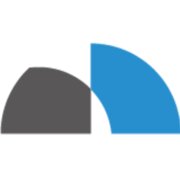Best Private Client Lawyers in Japan
Share your needs with us, get contacted by law firms.
Free. Takes 2 min.
Or refine your search by selecting a city:
List of the best lawyers in Japan
About Private Client Law in Japan
Private Client law in Japan involves legal services tailored to individuals, families, and closely held businesses concerning their personal affairs, wealth, and assets. This area encompasses estate planning, wills and inheritance, trusts, tax planning, real estate management, succession of family-owned businesses, and guardianship issues. With Japan's unique legal system and cultural nuances, Private Client matters are governed by complex laws that blend civil law principles, tax regulations, and family customs. This field is especially important in Japan due to the aging population and the significant transfer of wealth occurring between generations.
Why You May Need a Lawyer
There are various situations where individuals and families may require legal assistance in matters relating to Private Client law in Japan. Common scenarios include:
- Planning and drafting wills to ensure clear inheritance of assets
- Setting up family trusts for asset protection or tax planning
- Managing international assets or cross-border inheritances
- Resolving disputes among heirs, beneficiaries, or family members
- Handling the succession of family businesses
- Addressing guardianship for minors or elderly family members lacking capacity
- Minimizing estate taxes and complying with related tax obligations
- Navigating government procedures during estate administration
Japanese laws can be strict and formal, and any missteps in these intricate areas may lead to disputes, tax penalties, or unintended outcomes. A qualified lawyer helps clients understand their options, prepares the necessary documents, represents them in negotiations, and ensures compliance with all required procedures.
Local Laws Overview
Japanese Private Client law is primarily governed by statutes such as the Civil Code, the Inheritance Tax Act, and various ordinances. Key local aspects include:
- Wills: Japan recognizes holograph (hand-written), notarial, and sealed wills. There are formal requirements for validity. Wills can designate heirs and specify asset distribution.
- Inheritance: Statutory heirs are defined by the Civil Code, covering spouses, children, parents, siblings, and other relatives in an order of priority. Forced heirship rules guarantee a legal portion to certain heirs.
- Estate Administration: Upon death, heirs inherit both assets and liabilities. Asset division may require court involvement, especially in the case of disputes.
- Trusts: The Trust Act provides for the creation and administration of trusts, which can facilitate asset management, estate planning, and tax planning.
- Taxation: Inheritance and gift taxes are higher in Japan than in many other countries and are based on the value of inherited assets with specific exemptions and rates.
- Guardianship: A legal guardian can be appointed for minors or incapacitated adults through family court procedures.
- International Issues: Japanese law contains specific provisions for foreign heirs or international assets, but cross-border matters may present added challenges.
Frequently Asked Questions
What happens if someone dies without a will in Japan?
If a person dies intestate (without a will), their estate will be distributed according to the rules of statutory inheritance under the Civil Code. These rules set out which family members are entitled to a share of the assets and in what proportions.
Can foreigners inherit assets in Japan?
Yes, foreigners can inherit assets located in Japan. However, there may be specific reporting and tax obligations, and international heirs should be aware of additional legal processes.
What is a forced heirship rule?
Forced heirship means certain family members, such as children and spouses, are legally entitled to receive a minimum share of the deceased's estate, even if a will states otherwise. This protects some heirs from disinheritance.
Do I need to pay inheritance tax in Japan?
Yes, inheritance tax is generally imposed on beneficiaries inheriting assets in Japan. The rates and exemptions depend on the value of assets and the relationship between the deceased and the beneficiary.
Can I distribute my assets however I wish in my will?
While you have some freedom to distribute your assets, forced heirship rules and other legal requirements limit complete discretion. A lawyer can help you understand these limitations and plan accordingly.
When should I consider using a trust?
Trusts are useful for managing assets, protecting wealth, supporting dependents, or achieving specific succession goals. They are also used for tax planning and avoiding probate.
How are family business successions handled?
Family business succession often involves complex legal, financial, and interpersonal issues. A lawyer can advise on business structure, share transfers, tax implications, and the preparation of succession plans.
What are the procedures for appointing a guardian in Japan?
Guardianship is granted by family courts for minors or adults lacking capacity. An application must be filed, and the court will assess suitability before making a decision.
What if there are disagreements among heirs?
Disputes among heirs can be resolved through negotiation, mediation, or ultimately through court proceedings if an agreement cannot be reached.
Are hand-written wills valid in Japan?
Yes, hand-written (holograph) wills are valid if they meet all formal requirements specified by law. However, mistakes or omissions may render them invalid, so legal advice is recommended.
Additional Resources
For further information or assistance regarding Private Client law in Japan, the following resources may be helpful:
- Japan Federation of Bar Associations (JFBA)
- Ministry of Justice (for information on inheritance, guardianship, and legal systems)
- National Tax Agency (guidance on inheritance and gift tax obligations)
- Local Legal Affairs Bureaus
- Family Courts in each prefecture (for guardianship and inheritance-related disputes)
Next Steps
If you believe you require legal assistance in Private Client matters in Japan, consider taking these steps:
- Make a detailed list of your assets, beneficiaries, and any existing legal documents such as wills or trust deeds
- Consider the goals you want to achieve, such as maximizing inheritance, minimizing taxes, or securing care for dependents
- Contact a qualified lawyer specializing in Private Client law or family law
- Prepare relevant documents and information for your consultation
- Ask questions about your options, costs, timelines, and the lawyer's experience with cases like yours
Seeking early advice can help you avoid costly mistakes and ensure your wishes are respected according to Japanese law. A skilled legal professional can guide you through every step of the process.
Lawzana helps you find the best lawyers and law firms in Japan through a curated and pre-screened list of qualified legal professionals. Our platform offers rankings and detailed profiles of attorneys and law firms, allowing you to compare based on practice areas, including Private Client, experience, and client feedback.
Each profile includes a description of the firm's areas of practice, client reviews, team members and partners, year of establishment, spoken languages, office locations, contact information, social media presence, and any published articles or resources. Most firms on our platform speak English and are experienced in both local and international legal matters.
Get a quote from top-rated law firms in Japan — quickly, securely, and without unnecessary hassle.
Disclaimer:
The information provided on this page is for general informational purposes only and does not constitute legal advice. While we strive to ensure the accuracy and relevance of the content, legal information may change over time, and interpretations of the law can vary. You should always consult with a qualified legal professional for advice specific to your situation.
We disclaim all liability for actions taken or not taken based on the content of this page. If you believe any information is incorrect or outdated, please contact us, and we will review and update it where appropriate.
Browse private client law firms by service in Japan
Japan Attorneys in related practice areas.
Browse private client law firms by city in Japan
Refine your search by selecting a city.
















